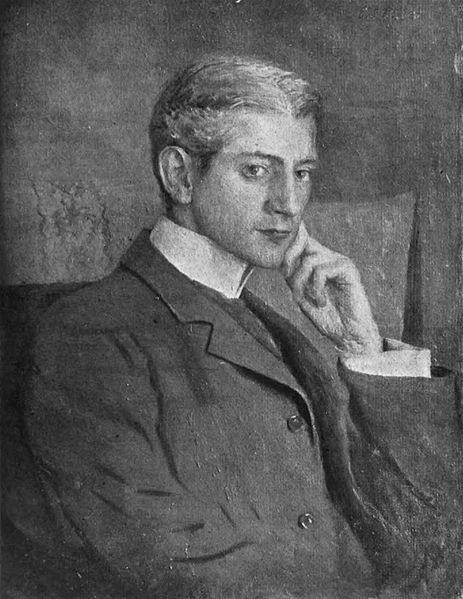Benjamin Franklin Norris Jr. was an American journalist and novelist during the Progressive Era, whose fiction was predominantly in the naturalist genre. His notable works include McTeague: A Story of San Francisco (1899), The Octopus: A Story of California (1901) and The Pit (1903).
Portrait of Norris, by Arnold Genthe
Image: Frank Norris Signature
Frank Norris
Portrait of Norris, by Ernest Peixotto
Naturalism is a literary movement beginning in the late nineteenth century, similar to literary realism in its rejection of Romanticism, but distinct in its embrace of determinism, detachment, scientific objectivism, and social commentary. Literary naturalism emphasizes observation and the scientific method in the fictional portrayal of reality. Naturalism includes detachment, in which the author maintains an impersonal tone and disinterested point of view; determinism, which is defined as the opposite of free will, in which a character's fate has been decided, even predetermined, by impersonal forces of nature beyond human control; and a sense that the universe itself is indifferent to human life. The novel would be an experiment where the author could discover and analyze the forces, or scientific laws, that influenced behavior, and these included emotion, heredity, and environment. The movement largely traces to the theories of French author Émile Zola.

Excerpt from the naturalistic book "Le sou du mutilé". Written by Cyriel Buysse in the beginning of the 20th century.





